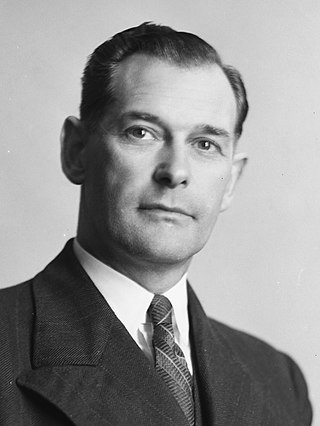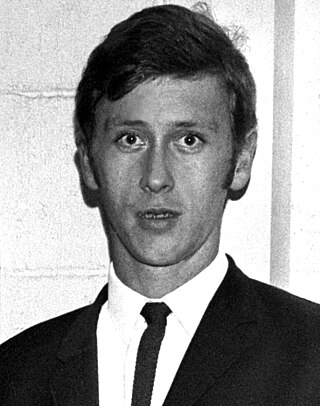
Derek Francis Quigley is a New Zealand former politician. He was a prominent member of the National Party during the late 1970s and early 1980s, and was known for his support of free-market economics and trade liberalisation. Quigley left the National Party after clashing with its leadership, and later co-founded the ACT New Zealand party.

The 1963 New Zealand general election was a nationwide vote to determine the shape of New Zealand Parliament's 34th term. The results were almost identical to those of the previous election, and the governing National Party remained in office.
The Christchurch Central by-election of 1979 was a by-election during the 39th New Zealand Parliament. It was prompted by the death of Bruce Barclay, a Labour Party MP, and resulted in Geoffrey Palmer, also of the Labour Party, being elected to replace him for the seat of Christchurch Central. Palmer would eventually go on to become Prime Minister. The by-election was somewhat embarrassing for the National Party, whose candidate was pushed into third place by Social Credit's Terry Heffernan.

The Rangitikei by-election of 1978 was a by-election in the New Zealand electorate of Rangitikei, a predominantly rural district in the middle of New Zealand's North Island. The by-election occurred on 18 February 1978, and was precipitated by the death of sitting National Party member of parliament Sir Roy Jack in December 1977.

Neville George Pickering was a New Zealand politician of the Labour Party.
Herbert Elmer Lorraine Pickering was a New Zealand politician of the National Party, and was a cabinet minister.
The Timaru by-election of 1985 was a by-election for the electorate of Timaru during the term of the 40th New Zealand Parliament. It was triggered by the death of Sir Basil Arthur on 1 May 1985. Sir Basil was Speaker of the House, and had inherited the rank of baronet from his father in 1949.
Hurunui was a parliamentary electorate in the Canterbury region of New Zealand, from 1902 to 1963.

The Sydenham by-election 1974 was a by-election held in the Sydenham electorate during the term of the 37th New Zealand Parliament on 2 November 1974. Eight candidates stood in total.
The 1947 Avon by-election was a by-election held during the 28th New Zealand Parliament in the Christchurch electorate of Avon. The by-election occurred following the death of MP Dan Sullivan and was won by John Mathison.
The Marlborough by-election of 1970 was a by-election for the electorate of Marlborough, held on 21 February 1970 during the 30th New Zealand Parliament.

The Northern Maori by-election of 1963 was a by-election for the electorate of Northern Maori on 16 March 1963 during the 33rd New Zealand Parliament. The by-election resulted from the death of the previous member Tapihana Paikea on 7 January 1963. It was held the same day as the Otahuhu by-election.
The 1947 Westland by-election was a by-election held during the 28th New Zealand Parliament in the South Island electorate of Westland. The by-election occurred following the death of MP James O'Brien and was won by Jim Kent.
The Waitaki by-election 1962 was a by-election held in the Waitaki electorate in South Canterbury and North Otago during the term of the 33rd New Zealand Parliament, on 10 March 1962. The by-election was won by Alan Dick.

The Hamilton by-election 1959 was a by-election held in the Hamilton electorate in Hamilton in the Waikato during the term of the 32nd New Zealand Parliament, on 2 May 1959.

The Bay of Plenty by-election 1957 was a by-election held in the Bay of Plenty electorate in the Bay of Plenty during the term of the 31st New Zealand Parliament on 6 April 1957.

The Buller by-election 1962 was a by-election held in the Buller electorate in the West Coast during the term of the 33rd New Zealand Parliament, on 7 July 1962.

The Timaru by-election 1962 was a by-election held in the Timaru electorate in Canterbury during the term of the 33rd New Zealand Parliament, on 21 July 1962.

The Riccarton by-election 1956 was a by-election held in the Riccarton electorate in Christchurch during the term of the 31st New Zealand Parliament following the death of the Labour Party incumbent. The by-election, held on 27 October 1956, was won by Mick Connelly, also of the Labour Party.

The Raglan by-election of 1927 was a by-election held in the Raglan electorate during the 22nd New Zealand Parliament, on 29 September 1927. It was caused by the death of incumbent MP Richard Bollard of the Reform Party. Despite being a local contest it quickly became a national contest in miniature due to growing discontent with the Reform Government.












